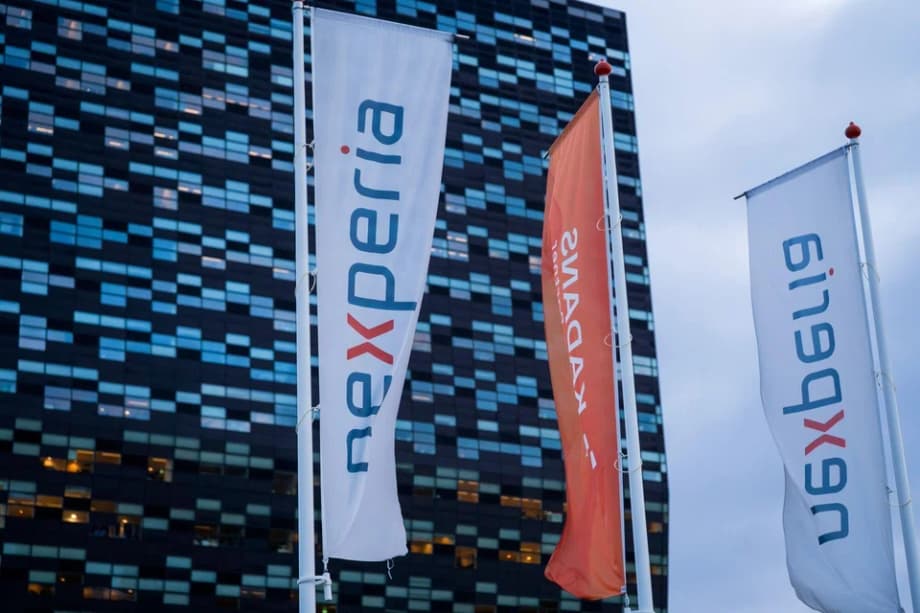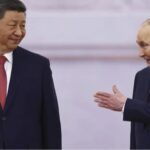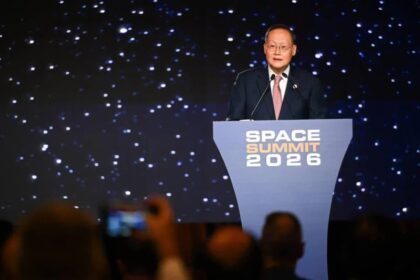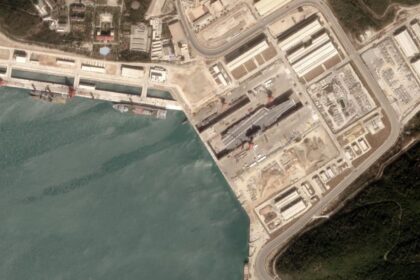A rare intervention triggers a global semiconductor shock
The Netherlands has taken the extraordinary step of asserting direct control over Nexperia, a semiconductor maker that is owned by Chinas Wingtech Technology, citing urgent risks to economic security and lapses in corporate governance. The move restricts management decisions for one year, keeps production running, and hands key voting powers to an independent Dutch administrator. It also suspends the influence of Wingtech founder Zhang Xuezheng over Nexperia, the company he helped transform into a vital supplier of basic chips used in cars, power systems, and consumer devices.
- A rare intervention triggers a global semiconductor shock
- What drove the Netherlands to step in
- Who is Zhang Xuezheng and how did Wingtech rise
- How Nexperia fits in the chip ecosystem
- Escalation with Beijing and the evolving trade context
- Knock on effects for carmakers and global supply chains
- Legal and governance fallout inside Nexperia
- Comparisons with other government actions
- What comes next for Wingtech and Nexperia
- At a Glance
Authorities invoked the Goods Availability Act, a legal tool designed for exceptional situations. The aim is to prevent the loss of critical know how and ensure access to essential components during a crisis. Dutch officials said the state will not own Nexperia, but it can reverse or block actions that could endanger the continuity of supply or the protection of locally developed technology. Wingtech’s shares fell around 10 percent after the announcement, reflecting market concern about the immediate hit to influence and future earnings.
Beijing responded by blocking exports of Nexperia products from China. That cut deeply because a large share of Nexperia’s chips manufactured in Europe are sent to China for packaging and testing before global distribution. Nexperia has asked for exemptions and is pursuing workarounds to support customers. Internally, the company also halted shipments of wafers to its plant in Dongguan following what it called a failure to meet contractual payment terms, a step that further strained flows of finished parts.
This intervention reverberates far beyond the Netherlands. Nexperia’s diodes, transistors, and power management chips may be simple, yet they are the unseen backbone of modern autos and industrial systems. Carmakers and parts suppliers across Europe, the United States, India, and Japan are now watching for bottlenecks. Any sudden disruption of these commodity chips can idle assembly lines just as surely as a shortage of advanced processors.
What drove the Netherlands to step in
Officials in The Hague argued that the case presented a real risk to European industrial resilience. The Goods Availability Act allows the government to intervene when continuity of supply and key technological capabilities are at stake. The order restricts major decisions at Nexperia for one year, including relocating assets, dismissing top executives, or changing the capital structure without approval. Production can continue, and the company says it intends to keep serving customers under the new oversight.
Concerns about governance had been growing for months. According to court filings and people briefed on the situation, Nexperia management under Zhang planned aggressive restructuring steps in Europe that included moving certain tools and patents to China, scaling back research in Germany, and reducing headcount. Dutch authorities concluded that the company’s European operations risked being hollowed out, which could drain highly specialized knowledge and weaken security of supply for essential components. The Dutch government also stated there was no direct United States involvement in its decision, even as transatlantic coordination on chip controls has been common since 2022.
Vincent Karremans, the Dutch minister of economic affairs, explained the urgency of the intervention in a broadcast interview.
“I recently received serious and urgent signals that the company has major shortcomings that could jeopardise security of supply. This would have major consequences for the European and Dutch economies.”
Wingtech rejected the move and accused internal rivals of seeking to wrest control through legal maneuvers. The company said it would defend its rights through the courts while complying with applicable laws.
“This is excessive interference driven by geopolitical bias,” Wingtech said. “Non Chinese executives have tried to alter the equity structure in a cloaked power grab.”
Who is Zhang Xuezheng and how did Wingtech rise
Zhang Xuezheng founded Wingtech in 2006 with a small engineering team that designed handsets for global brands. Within a few years the firm was a rising force in contract design for mobile phones, a business model that allowed it to serve multiple brands while absorbing design knowledge at speed. Zhang then pushed into manufacturing to capture more value in the supply chain.
Wingtech’s collaboration with fast growing Chinese brands, including Xiaomi, propelled it into high volume production. By 2015, it had become the largest original design manufacturer by shipments in the handset business, a position that brought scale purchasing, deeper manufacturing know how, and cash for expansion. The next logical step was to move into semiconductors, the beating heart of modern electronics.
Nexperia, once the standard products division of NXP Semiconductors, had become an independent manufacturer of commodity chips with a large global footprint. Wingtech acquired a controlling stake in 2018 and completed full ownership soon after. That deal was hailed in China at the time as a landmark in the country’s ambition to build an end to end electronics supply chain. It also opened doors to supply premium device makers, including Apple, while boosting Zhang’s standing in China’s tech scene.
Wingtech’s semiconductor revenue grew strongly in 2024 and 2025, yet the company warned investors that revenue and profit could be hit if control of Nexperia is not restored by the end of 2025. The market has already marked down the shares by billions of yuan, a direct reflection of how strategic risk can overwhelm even a well executed industrial strategy.
How Nexperia fits in the chip ecosystem
Nexperia makes the humble, ubiquitous parts that let devices manage power, regulate voltages, and connect sensors. Diodes and transistors are its bread and butter, and in some categories the company commands up to 40 percent share. These components are cheap, but they are essential to every car, router, appliance, and industrial controller. A shortage does not appear on consumer spec sheets, yet it can stop final assembly in an instant.
The company also develops wide gap semiconductors, a family of materials such as silicon carbide and gallium nitride that can handle higher voltages with better efficiency than traditional silicon. These materials are prized in electric vehicles, fast chargers, solar inverters, and power modules inside artificial intelligence data centers. Control of this know how is now a central concern for European policymakers who worry about losing both capacity and talent.
Nexperia’s front end wafer fabrication for these chips is mostly in Europe. Much of the packaging and testing happens in China, historically for reasons of cost and scale, and industry estimates put that share at roughly 70 percent. After the Dutch order, the company told customers it was suspending wafer shipments to its Dongguan assembly facility because local management had not met payment terms. The interim chief executive added that shipments would not resume without full contractual compliance.
“Unless contractual obligations are fully satisfied, wafer supply to the site cannot resume,” interim chief executive Stefan Tilger wrote in a letter to customers.
That operational pause collided with China’s prohibition on exporting parts assembled in the country. The one two hit explains why carmakers and electronics suppliers reacted so quickly, since the bottleneck sits at the end of the manufacturing chain where most inventory buffers are thin.
Escalation with Beijing and the evolving trade context
China’s commerce ministry moved to block exports of Nexperia parts from China within days of the Dutch action. Nexperia’s Chinese unit, which performs packaging and sells into the domestic market, started operating with greater independence to keep serving local customers. The tug of war immediately put European distribution at risk because completed parts typically pass through China on their way to overseas buyers.
Washington had already placed Wingtech on the US entity list in December 2024. That designation restricts exports by American companies to listed firms without special licenses. A later US rule, known informally as the 50 percent subsidiary rule, extended some restrictions to subsidiaries controlled by listed entities. After a meeting between the Chinese and US heads of state, Chinese officials said Washington suspended implementation of that subsidiary rule for one year. Dutch officials maintain that their Nexperia decision was taken independently under Dutch law, yet transatlantic efforts to police sensitive technologies remain closely aligned.
Chinese industry groups condemned the Dutch step. The China Semiconductor Industry Association argued that European authorities were targeting Chinese companies unevenly.
“These measures are selective and discriminatory against Chinese enterprises,” the association said.
Chinese state media sharpened the rhetoric. An editorial in People’s Daily described the Dutch intervention as a raid on private property under the cover of legal formalities.
“This is robbery in legal disguise,” the editorial said, arguing that national security had become a blanket excuse for trade protection.
Knock on effects for carmakers and global supply chains
Automakers in Europe, the United States, Japan, and India are bracing for supply snags. Nexperia’s parts flow into engine control units, lighting and safety systems, battery management, and infotainment modules. Maruti Suzuki and Hyundai in India have told partners they are monitoring supply closely. Suppliers such as Bosch have warned that production schedules could need adjustment if the situation drags into winter.
There is no quick substitute for a supplier with Nexperia’s scale in commodity power parts. Switching designs to alternative vendors requires fresh validation, new logistics contracts, and production rebalancing at other packaging sites. Those steps take time and engineering hours that are already stretched thin. Companies report that Nexperia is working on alternative routing and emergency allocation, though customers still expect delays and a rise in spot prices.
The current shock arrives after earlier restrictions on materials such as rare earth magnets and gallium disrupted purchasing plans in multiple regions. Procurement teams are now treating standard parts with the same caution once reserved for advanced processors. The industrial lesson is that a short list of seemingly interchangeable components can become single points of failure when politics intrudes on production.
Legal and governance fallout inside Nexperia
Corporate control at Nexperia has shifted under court supervision. The Enterprise Chamber in Amsterdam suspended Zhang from his positions and appointed a Dutch businessman to fill a board seat with a deciding vote. Voting rights for most of the shares have been transferred temporarily to a Dutch lawyer serving as administrator. The Dutch ministry’s order also restricts major capital moves or asset relocations for one year unless the state approves them.
The company installed Stefan Tilger as interim chief executive. He has told customers that operations will continue and that the firm is pursuing alternative arrangements to keep parts flowing. Nexperia has also reiterated that it complies with relevant laws and regulations in every jurisdiction where it operates.
“We are confident that daily operations can continue under the current framework. Nexperia complies with all laws and regulations and will keep supporting customers while these measures are in place,” the company said.
Comparisons with other government actions
State intervention in technology assets is no longer rare. In the United Kingdom, authorities ordered Wingtech to sell most of its stake in the large chip facility at Newport in Wales on national security grounds. The Netherlands has scrutinized several semiconductor transactions and research tie ups. Singapore has passed legislation that enables the government to place companies under direction for national security reasons, a tool similar in spirit to the Dutch approach.
European industrial policy has shifted toward safeguarding strategic capabilities. The European Union is funding new plants and strengthening screening of sensitive acquisitions. This case shows that oversight will not stop at inward investment reviews. Governments are now willing to reach inside companies to address perceived governance failures that could put critical technology at risk.
What comes next for Wingtech and Nexperia
Negotiations are likely. Dutch officials have signaled they would welcome a stable arrangement that secures technology and supply in Europe. Chinese authorities have shown they can tighten or relax export controls to apply pressure or to keep commerce moving. Exemptions for selected products are possible, though customers should expect administrative lead times and partial allocations.
Wingtech has said it will pursue legal remedies. That path could focus on corporate governance questions, the scope of the Dutch order, and the performance of the court appointed administrators. Financial pressure on Wingtech is real. It faces lost influence over a key asset and uncertainty around Nexperia’s outbound shipments from China.
Any durable solution will depend on rebuilding trust. Clear separation between Nexperia governance and its parent would help. Stronger controls on data access and asset transfers would also reassure policymakers. For customers, visibility on production and packaging schedules is paramount. The longer parts remain stuck between European fabs and Chinese assembly lines, the more auto and electronics plants will feel the pinch.
At a Glance
- The Netherlands used the Goods Availability Act to take control of Nexperia for one year while production continues.
- Courts suspended Wingtech founder Zhang Xuezheng from Nexperia roles and shifted voting power to an independent administrator.
- Beijing blocked exports of Nexperia products from China, threatening distribution because much packaging is done there.
- Nexperia makes core components like diodes and transistors, with about 10 percent global share and higher in some categories.
- Nexperia halted wafer shipments to its Dongguan site over payment issues as it sought to stabilize operations.
- Wingtech shares fell sharply and the company warned of risk to revenue if control of Nexperia is not restored by end 2025.
- Chinese industry groups called the Dutch move discriminatory, while Dutch officials cited urgent risks to economic security.
- Automakers and suppliers in Europe, the US, Japan, and India are preparing for shortages and delays.
- Washington placed Wingtech on the US entity list in 2024 and later suspended a broader subsidiary rule for one year after a leaders summit.
- The case fits a wider pattern of national security interventions in semiconductor assets in the UK, the Netherlands, and Singapore.












